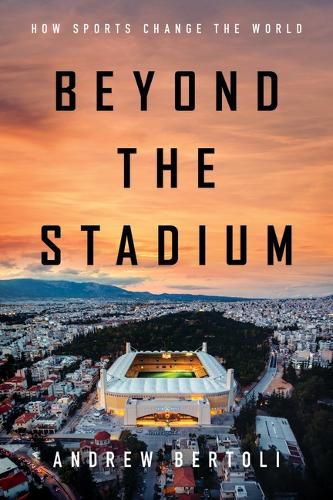Readings Newsletter
Become a Readings Member to make your shopping experience even easier.
Sign in or sign up for free!
You’re not far away from qualifying for FREE standard shipping within Australia
You’ve qualified for FREE standard shipping within Australia
The cart is loading…






There are two popular and competing viewpoints on sports. Many consider them a mere distraction from important social and political problems. Others champion sports as a powerful force for good: teaching character, promoting peace, and encouraging racial and gender equality. Andrew Bertoli shows that these dominant perspectives underestimate the full extent to which sports impact modern life. Sports can worsen relations between nations, divide countries internally, and disadvantage individuals from underprivileged backgrounds. Sports can also, however, build social capital, make people feel more connected, and provide participants with physical and cognitive benefits. Much depends on how people approach sports, both at the individual and societal levels.
This book highlights some of the profound and startling ways that sports and politics have interacted throughout recent history, including: how the Olympic torch relay was started by the Nazis and reflected Hitler's ambition to dominate Europe; the twentieth-century feminist movement to keep women out of the Olympics and the motivations of the female sports leaders who led it; how Michael Jordan's determination to stay out of politics during his career may have made him the most politically impactful athlete in history. Bertoli's insightful analysis challenges many conventional views while also helping readers understand how they can better utilize sports for themselves, their families, and their communities.
$9.00 standard shipping within Australia
FREE standard shipping within Australia for orders over $100.00
Express & International shipping calculated at checkout
There are two popular and competing viewpoints on sports. Many consider them a mere distraction from important social and political problems. Others champion sports as a powerful force for good: teaching character, promoting peace, and encouraging racial and gender equality. Andrew Bertoli shows that these dominant perspectives underestimate the full extent to which sports impact modern life. Sports can worsen relations between nations, divide countries internally, and disadvantage individuals from underprivileged backgrounds. Sports can also, however, build social capital, make people feel more connected, and provide participants with physical and cognitive benefits. Much depends on how people approach sports, both at the individual and societal levels.
This book highlights some of the profound and startling ways that sports and politics have interacted throughout recent history, including: how the Olympic torch relay was started by the Nazis and reflected Hitler's ambition to dominate Europe; the twentieth-century feminist movement to keep women out of the Olympics and the motivations of the female sports leaders who led it; how Michael Jordan's determination to stay out of politics during his career may have made him the most politically impactful athlete in history. Bertoli's insightful analysis challenges many conventional views while also helping readers understand how they can better utilize sports for themselves, their families, and their communities.